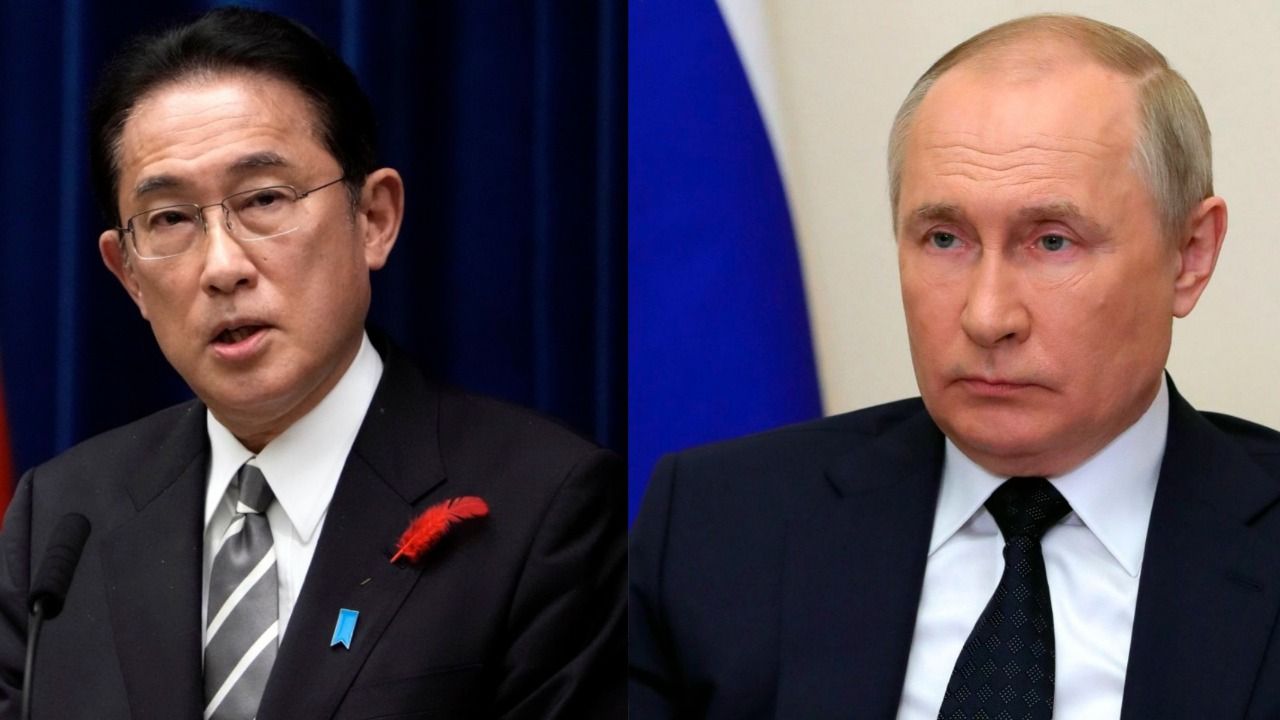The war in Ukraine has stirred up tensions between
nations that were often regarded as either partially resolved or removed from public
memory. One such simmering issue is the rise in acrimony between Japan and
Russia, two nations technically still at war. After the Second World War, Japan
and Russia were supposed to sign a peace deal, one that remains to be signed after
77 years. While slow, progress was being made on the front since the turn of
the millennium. Now, the Russia-Ukraine conflict threatens to derail much of
the work done.
Japan Prime Minister Fumio Kishida has come out
strongly in support of Ukraine in the ongoing crisis. On Wednesday, Kishida
announced a slew of measures to strengthen Japan’s sanctions on Russia at a G7
meeting in Brussels. Kishida, who succeeded Shinzo Abe last year, had said
during his visit to India last week that no nation should be allowed to change
the status quo of the world by force. He had also said that the invasion of
Ukraine strikes at the roots of international order.
Also Read | Madeleine Albright’s final prophecy: Russia’s war on Ukraine
At the heart of the tensions between Russia and Japan
is a small group of islands located in Japan’s northernmost island of Hokkaido.
During the Second World War, the Soviet Union declared war on Japan and seized
the Hokkaido group of islands. All the 17,000 Japanese residing in the islands
at the time were ousted. The islands – which the Japanese call Northern
Territories and the Russians southern Kurlis – continue to be a hotspot of
tensions between Russia and Japan. It is this dispute that has not let Russia
and Japan sign a peace deal for so many decades.
Also Read | India abstains from voting in UNSC on Russian-led draft resolution on Ukraine
The islands, home to rich fishing grounds, also has
immense strategic significance for both nations. Russia, over time, has kept
increasing its military presence on the islands and has even docked its pacific
fleet here, causing consternation among the Japanese. Deployment of fighter
jets on the islands have also attracted the ire of the Japanese government.
Over the years, there have been several rounds of
discussions between Russia and Japan on the fate of the islands. A total of 25
meetings were held the leaders of Russia and Japan on the issue between 2012
and 2020, according to a Bloomberg report.
In 2018, erstwhile Japanese PM Shinzo Abe and Russian
President Vladimir Putin decided that the negotiations over the islands should
be based on the 1956 joint declaration, which called for the transfer of two of
the four islands to Japan. Russia called upon Tokyo to acknowledge its
sovereignty over the islands. But in 2020, Russia amended its constitution,
making it illegal to hand over any of its territories.
Now, the Kremlin has halted peace talks after Japan
removed Russia’s ‘most favoured nation’ trade status as part of its sanctions
after the Ukraine invasion. Japan also increased the scope of asset freezes on
Russia and has banned the import of some products. In response, the Russian
Foreign Ministry has said, “The Russian side, in the current conditions, does
not intend to continue talks with Japan on the peace treaty.”
This, “due to the impossibility of discussing the core
document on bilateral relations with a country that has taken an openly hostile
position and is striving to cause harm to the interests of our country.” Russia
has also called off several joint economic programmes and concluded a visa-free
regime that allowed Japanese people to visit the islands.







